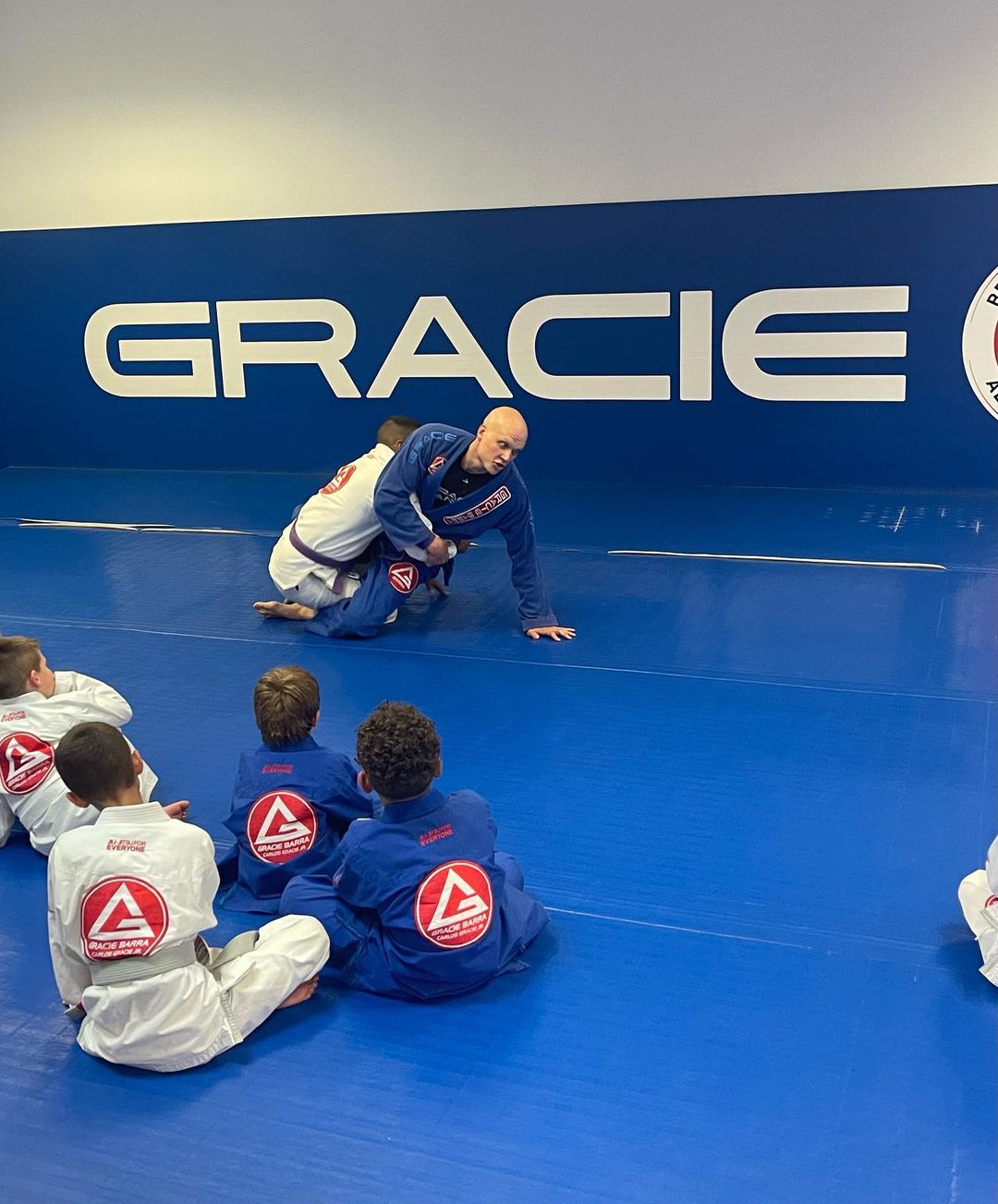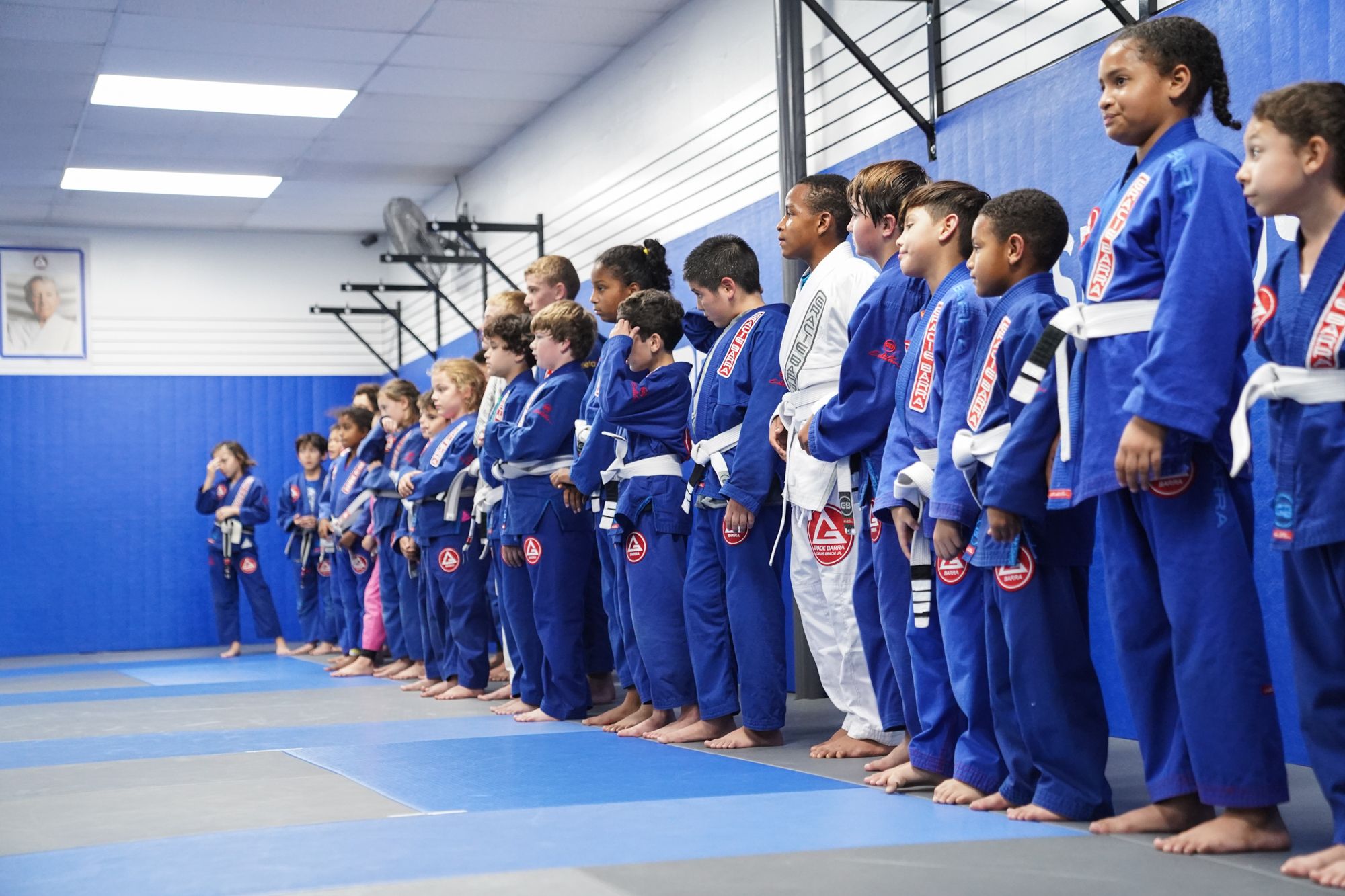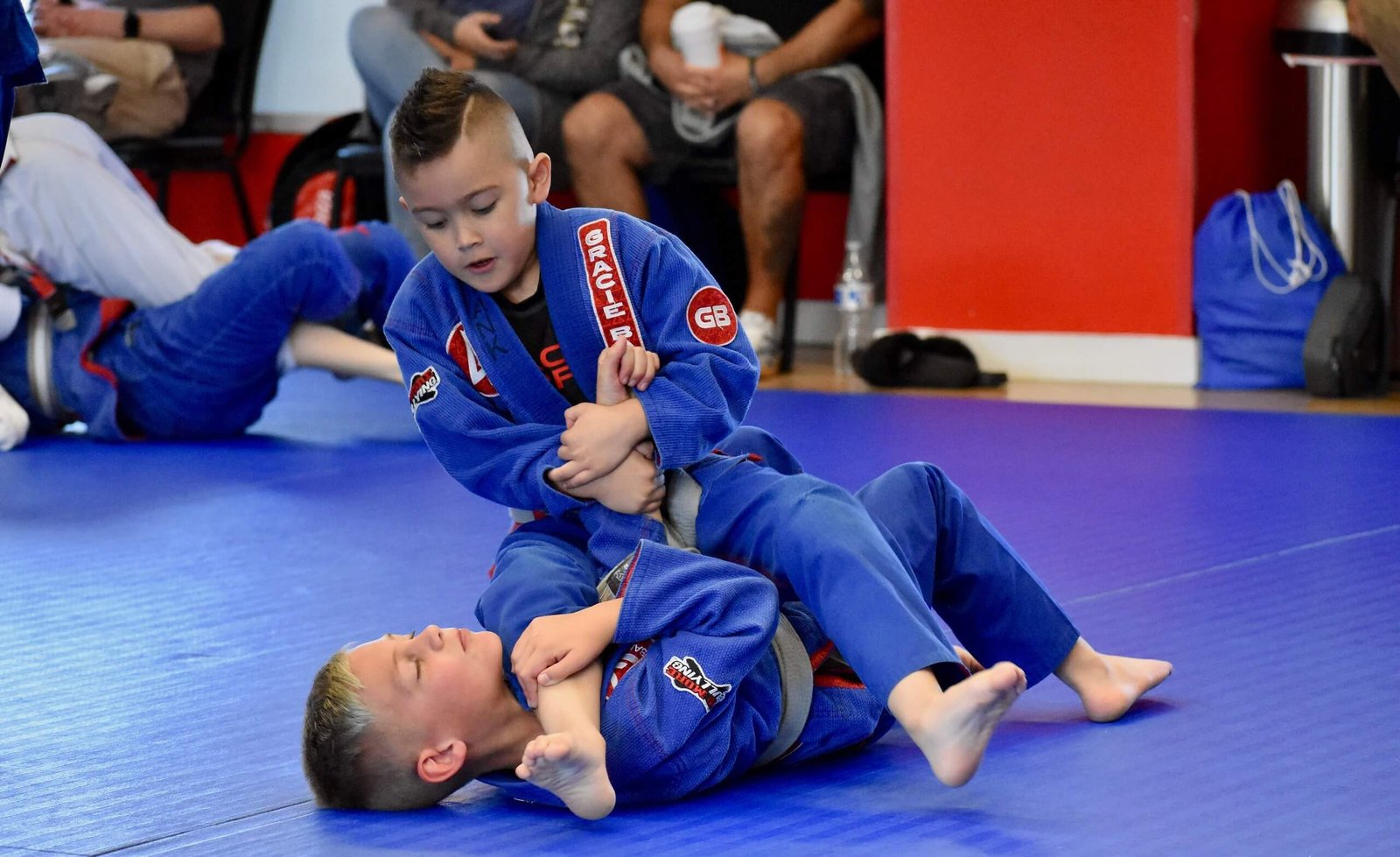Introducing:
Brazilian Jiu-Jitsu (BJJ) emerges as a transformative discipline that goes well beyond mere physical exercise, deeply influencing the personal growth of youngsters. In this piece, we explore the numerous ways in which involvement in BJJ encourages the development of principles, the gaining of abilities, and the fostering of emotional and mental health in our youthful participants.

Discipline and Respect:
BJJ instills in children the values of discipline and respect, emphasizing the importance of adhering to rules, showing respect to peers and instructors, and maintaining etiquette on the mat. This fosters an environment of mutual respect, teaching children the significance of these virtues in all aspects of their lives.
Self-Confidence and Self-Esteem:
As children progress in BJJ, mastering new techniques and achieving milestones, they experience a boost in self-confidence and self-esteem. Overcoming challenges and earning belts serve as tangible markers of their progress, empowering them to navigate challenges with newfound assurance.
Problem Solving and Decision Making:
BJJ is inherently strategic, requiring children to think critically and make quick decisions in the heat of the moment. Through training and matches, they develop problem-solving skills and learn to handle pressure effectively, skills that are invaluable in various areas of life.
Resilience and Persistence:
In BJJ, children encounter setbacks and obstacles, teaching them the importance of resilience and persistence. Learning to overcome frustration and setbacks builds their resilience, equipping them with the determination to persevere through difficulties both on and off the mat.
Social Skills and Empathy:
Participating in BJJ exposes children to a diverse group of peers, fostering social skills and empathy. Collaborating with teammates, offering support, and celebrating each other’s successes cultivates empathy and solidarity, nurturing positive relationships within the BJJ community and beyond.
Enhanced Focus and Concentration:
The dynamic nature of BJJ requires children to stay focused and alert, enhancing their concentration skills. Learning to maintain focus amidst distractions during training and matches improves their ability to concentrate in other areas of life, contributing to academic performance and daily tasks.

Learning the Significance of Modesty:
In Jiu-Jitsu, youngsters grasp that modesty is crucial for advancement, given there is always more to discover irrespective of their position. This teaching instills a mindset of continual enhancement, guiding children to appreciate learning, honor others, and confront challenges with modesty.
Fostering Patience and Emotional Mastery:
Jiu-Jitsu imparts the value of patience and emotional mastery when confronted with adversity. Through training, children grasp how to handle pressure and regulate their emotions, nurturing resilience and the ability to make judicious decisions even during trying circumstances.
Advancement of Mental Health and Wellness:
Beyond the physical perks, Jiu-Jitsu aids in improving children’s mental well-being by alleviating stress, boosting self-esteem, and fostering a sense of accomplishment. These affirmative impacts elevate overall well-being, nurturing happier and more centered individuals.
Creation of Community and Inclusivity:
Participation in Jiu-Jitsu nurtures a sense of community as children become integral members of a supportive network. Exchanging experiences with teammates and instructors strengthens social ties, imparting the importance of collaboration and teamwork to children.
Stimulating Creativity and Imagination:
Jiu-Jitsu fosters creativity and problem-solving as children explore various techniques and strategies. By adjusting movements and experimenting with approaches, they develop critical thinking abilities and amplify their capacity for creative thinking in diverse contexts.
Education on Health and Well-being:
Jiu-Jitsu serves as a platform for educating children on comprehensive health and well-being. Instructors often delve into topics such as nutrition, rest, and self-care, empowering children to make enlightened choices that contribute to their overall health and longevity.

In Summary:
Brazilian Jiu-Jitsu (BJJ) presents children with a transformative path of personal growth, nurturing values, skills, and emotional maturity. In the realm of BJJ, youngsters not only acquire physical techniques but also develop crucial life skills such as discipline, self-assurance, resilience, humility, and emotional composure. These attributes form a solid base for their future endeavors, enabling them to confront life’s hurdles with assurance, empathy, and adaptability. Ultimately, BJJ equips children with the arsenal they require to flourish and excel, both within and beyond the training arena.


